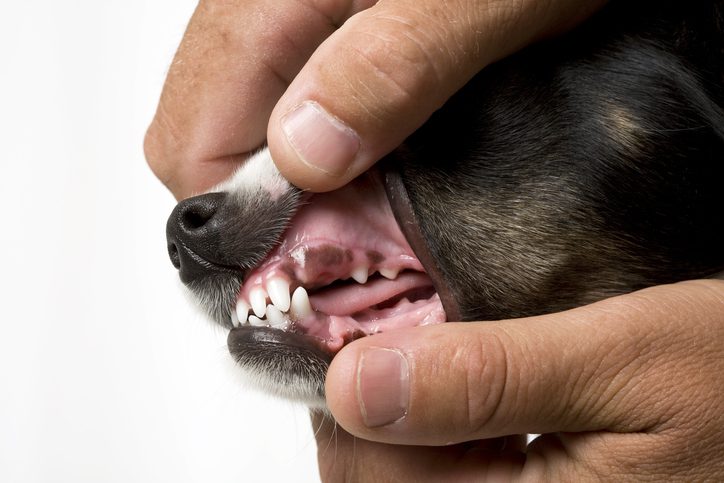Dog Periodontal Disease in Boxborough, MA: What Every Pet Owner Should Know

Did you know dogs can suffer from periodontal disease just like humans can? Periodontal disease in dogs, which is also known more commonly as gum disease, is a frequent problem for pets and can begin early in their life, too.
In the article below, you’ll find a few facts about gum disease in dogs to help you better understand this condition. You can use this information to think about your dog’s own dental health and hygiene, and to figure out when it might be time to talk to your vet about your pet’s gum health, too.
Signs of Dog Gum Disease Vary Depending on the Stage
There are four stages to dog periodontal disease and your veterinarian can help you determine what treatment your dog may need.
Stage 1
This stage is also known as gingivitis. Symptoms include foul breath, bleeding gums, and redness of the gums. Dogs may have a little pain when eating or chewing, but not much.
Stage 2
This stage includes all the symptoms of the first stage as well as receding of the gums. Gum receding may not be very serious yet and may only be noticeable to a vet.
Stage 3
Aside from all the other symptoms previously mentioned, this stage includes more gum recession than stage 2. It also includes the risk of loose teeth.
Stage 4
Dogs with stage 4 gum disease have a very serious condition. The gums may bleed or ooze pus, and the teeth may become very loose or may fall out completely. The teeth and gums may also start to rot, turn black, and cause very foul-smelling breath.
Later Stages of Gum Disease Can’t be Cured, but Can be Managed
Gingivitis, or stage 1 periodontal disease, can be cured. This problem can be reversed if you keep up with regular teeth cleanings and brush your dog’s teeth every day. With a little time and patience, your dog’s dental health will be back to normal.
However, stages 2 through 4 do not have as good of a prognosis. Stage 2 gum disease may be able to be mostly reversed if your dog has a professional cleaning by the vet. Stages 3 and 4 will require the dog’s teeth to be removed under anesthesia, which is a very difficult procedure for dogs to undergo.
Plaque is the Cause of Gum Disease in Dogs
Just like in humans, gum disease in dogs is caused by a buildup of plaque on the teeth. Plaque turns into tartar, which becomes sticky on the tooth and leads to even more plaque buildup. The longer plaque and tartar sit on a tooth, the more damaged it will become from the presence of this bacteria.
As plaque builds up, it causes bacteria to make its way into the gums. This condition also causes inflammation and recession of the gums with time. The longer the condition persists, the more severe it becomes.
Leaving Gum Disease Untreated and Unmanaged Can Have Serious Consequences
Gums and teeth may abscess in dogs who have untreated periodontal disease, which can cause severely infected open sores inside and outside the dog’s mouth. Holes may form between a dog’s mouth and nose in some severe instances of untreated gum disease, too.
Dogs who have severe periodontal disease may be more at risk of jaw fractures than other dogs, especially when the condition progresses to the bone. Additionally, severe, and unmanaged gum disease may be a leading contributor in heart disease, kidney disease, and liver disease in dogs. All these problems are preventable either partially or fully by keeping up with a dog’s dental hygiene needs.
Dog Teeth Cleaning is the Best Way to Prevent Gum Disease
If your dog is still young or has not developed serious gum disease yet, you can start brushing their teeth now and keep up with this routine to keep their gums and teeth healthy. Ideally, you should brush your dog’s teeth every day.
You should also talk with your vet about professional teeth cleanings for your dog. These are recommended for dogs who are older than two years old, but they depend on your dog’s overall health and dental needs, too.
Call Veterinary Dental Services
As you can see, there are a lot of reasons to have your dog checked frequently for periodontal disease and to keep up with regular teeth cleanings, too. By starting your dog early on a routine of teeth brushing at home and teeth cleanings at the veterinarian when needed, you can help their gums stay healthier longer.
Call [clinic-phone] to talk to your Veterinary Dental Services vet if you have any further questions or concerns about your dog’s gum health. Your vet can also help you determine whether your dog is a good candidate for a professional teeth cleaning and when they might need one.
Recent Posts
About Us
At Veterinary Dental Services, we provide advanced, compassionate, and AAHA-accredited dental care for pets. We’re proud to have set the standard in veterinary dentistry and oral surgery for more than 25 years.
